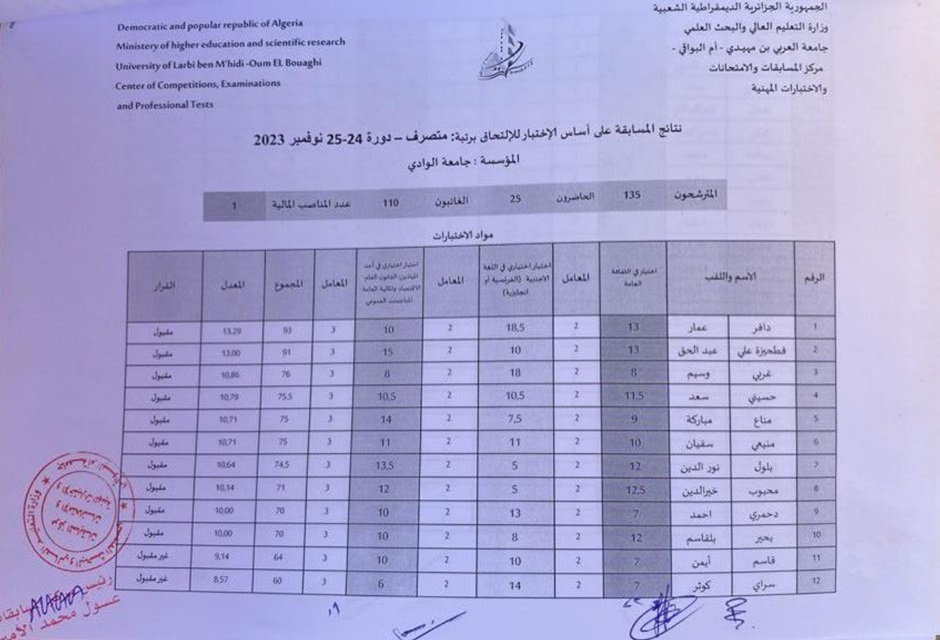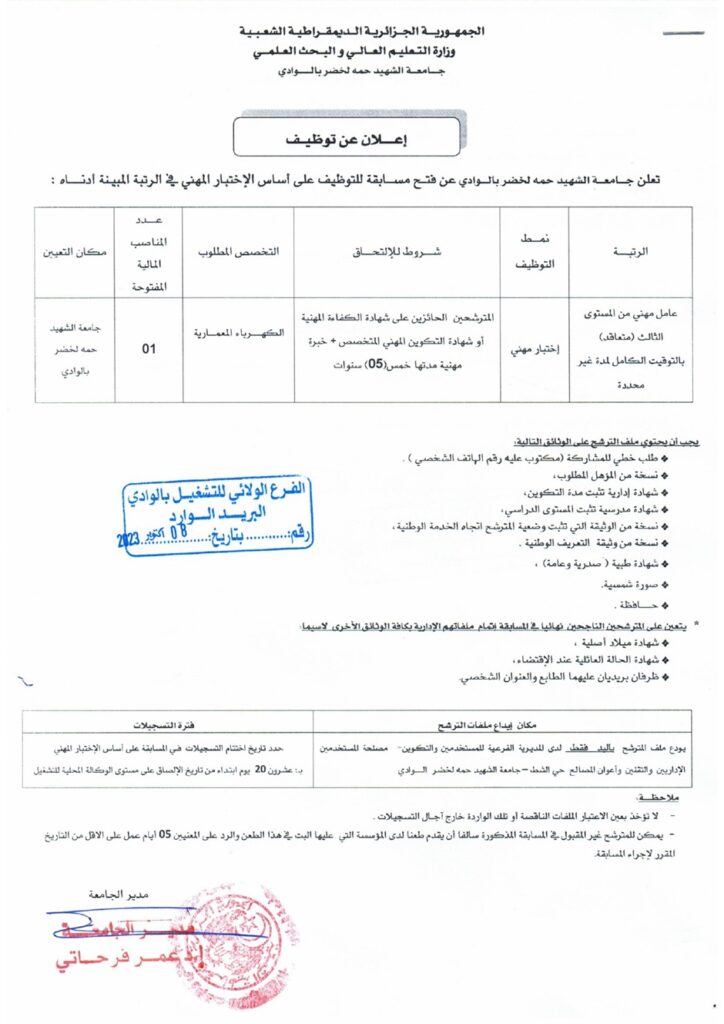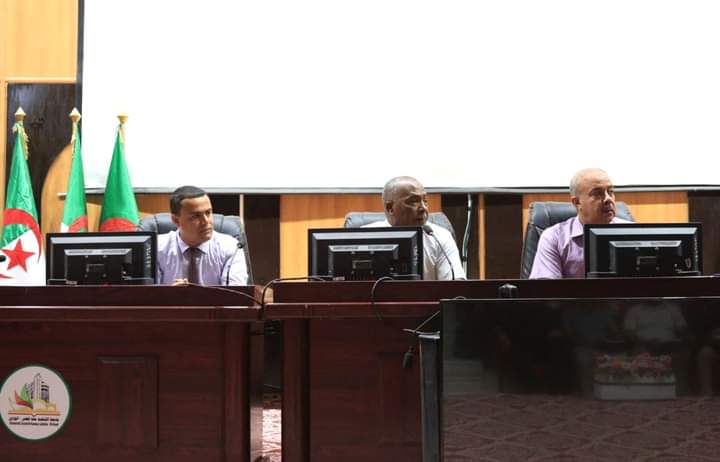8.2.6 “Employment policy pay scale equity Have a policy on pay scale equity including a commitment to measurement and elimination of gender pay gaps”
As a public university, the University of El Oued is committed to fostering an equitable and inclusive workplace where employees receive fair and just compensation. Guided by Algeria’s robust legal framework on wage equality, this policy outlines the university’s approach to ensuring pay scale equity, with a particular focus on identifying and addressing gender-based pay disparities.
Legal Framework
The University of El Oued adheres to the following national laws and regulations on wage equality:
- Algerian Public Service Law (Law No. 133-66, June 2, 1966):
- Article 5 prohibits gender-based differentiation in the application of pay laws, except in cases requiring specific physical readiness for designated roles.
- Order No. 06-03 (July 15, 2006):
- Article 26 underscores that discrimination based on gender, opinions, origin, or social circumstances is strictly forbidden.
- Article 27 reinforces non-discrimination in employment practices.
- Article 74 mandates equality in public service recruitment and employment, establishing a legal basis for pay equity.
By aligning with these laws, the university upholds its responsibility to create a workplace where pay equity is not only a legal obligation but also a moral imperative.
https://www.mtess.gov.dz/ar/%D8%AA%D8%B4%D8%B1%D9%8A%D8%B9-%D8%A7%D9%84%D8%B9%D9%85%D9%84/
Policy Objectives
- Pay Scale Equity: Ensure all employees receive equal pay for equal work, regardless of gender or other personal attributes.
- Regular Assessment: Conduct periodic reviews of pay scales to identify and address disparities.
- Transparency: Promote transparency in salary structures and the decision-making process regarding compensation.
- Capacity Building: Provide training to HR and administrative staff on equity and non-discrimination in pay.
Implementation Measures
- Commitment to Equal Pay:
- The university guarantees equal pay for employees performing work of equal value, in line with Article 84 of Algeria’s labour laws.
- Transparent Recruitment and Promotion:
- Adhere to equitable practices in recruitment and promotion, ensuring pay scales are standardized and free from bias.
https://www.univ-eloued.dz/ar/%D9%8Eads-con-fon/



https://www.univ-eloued.dz/wp-content/uploads/2023/12/Preli-results.pdf

3. Grievance Mechanism:
- Establish a confidential system through which employees can report concerns related to wage disparities or discrimination.
https://lang.univ-eloued.dz/en/budg_acco_depa/
4. Awareness Programs:
- Conduct workshops and training sessions to educate staff about pay equity laws and the university’s commitment to these principles.

https://www.univ-eloued.dz/en/pedagogical-accompaniment-2/
Monitoring and Reporting
The University of El Oued is dedicated to continuous improvement in its pay equity practices. Annual reports on wage equality will be prepared, including findings from pay audits and steps taken to address identified gaps. These reports will be shared with the university community to promote accountability and transparency.
Conclusion
The University of El Oued remains steadfast in its commitment to eliminating gender-based pay disparities and ensuring pay scale equity for all its employees. By integrating national legal frameworks with proactive internal measures, the university fosters an environment where equality, fairness, and inclusivity are core principles.
